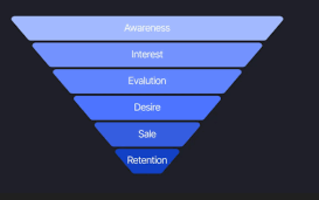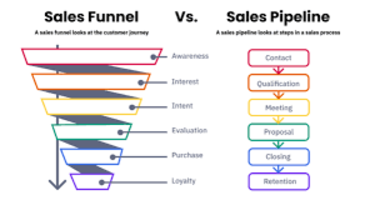Have you ever wondered why some businesses seem to effortlessly attract customers online while others struggle to get noticed? The difference often comes down to understanding and implementing the best digital marketing tips that actually work. Whether you’re a small business owner trying to expand your reach or a marketing professional looking to sharpen your skills, mastering digital marketing has become non-negotiable in today’s connected world.
Digital marketing is no longer just about having a website or posting occasionally on social media. It’s about creating meaningful connections with your audience, understanding their needs, and delivering value at every touch-point. The landscape changes rapidly, with new platforms emerging and consumer behaviors evolving constantly. This can feel overwhelming, but here’s the good news: the fundamental principles of successful digital marketing remain surprisingly consistent.
This guide will explore the best digital marketing tips that can transform your online presence. From choosing the right skills to master, to understanding proven strategies and frameworks that leading brands use, you’ll discover actionable insights that you can implement immediately.
Understanding Digital Marketing in Today’s Landscape
Digital marketing includes all marketing initiatives that make use of the internet or electronic devices. Businesses leverage digital channels to connect with current and prospective customers. Unlike traditional marketing, digital marketing allows for real-time interaction, precise targeting, and measurable results.
Accessibility is what makes digital marketing so appealing. Small businesses can compete with larger corporations by being strategic and creative. A well-executed digital marketing campaign can reach thousands or even millions of people at a fraction of the cost of traditional advertising methods.
Success in digital marketing requires understanding your audience deeply. Who are they? What problems do they face? Where do they spend their time online? Answering these questions forms the foundation of any effective digital marketing strategy.

Which Skill is Best for Digital Marketing?
While digital marketing encompasses numerous skills, some stand out as particularly valuable for building a successful career or growing your business.
Content Creation and Copywriting
The ability to create compelling content remains one of the most sought-after skills in digital marketing. Whether you’re writing blog posts, social media captions, email newsletters, or website copy, strong writing skills help you connect with audiences and drive action. Content is the fuel that powers most digital marketing channels, making this skill universally valuable.
Search Engine Optimization
Understanding how search engines work and how to optimize content for better visibility is invaluable. SEO skills help ensure your content reaches people actively searching for solutions you provide. This organic approach to digital marketing often delivers the highest return on investment over time.
Data Analysis and Interpretation
Digital marketing generates enormous amounts of data. The ability to analyze metrics, identify patterns, and draw actionable insights separates average marketers from exceptional ones. Understanding which metrics matter and how to improve them drives continuous growth.
Social Media Marketing
Social platforms have become primary channels for business communication. Knowing how to build communities, create engaging content, and leverage platform-specific features helps businesses maintain strong relationships with their audiences.
Paid Advertising Management
Skills in managing platforms like Google Ads, Facebook Ads, or LinkedIn Ads enable precise targeting and quick results. Understanding how to optimize ad spend, test creative variations, and improve conversion rates makes this skill highly valuable.
The best approach? Start with one or two skills that align with your interests and business needs, then expand gradually. Most successful digital marketers become specialists in one area while maintaining working knowledge across multiple disciplines.
How to Use Digital Marketing?
Using digital marketing effectively requires a systematic approach that aligns with your business objectives.
Start with Clear Goals
Define what success looks like for your business. Are you trying to increase brand awareness, generate leads, drive sales, or build customer loyalty? Your goals will determine which digital marketing channels and tactics make the most sense.
Know Your Audience Inside Out
Create buyer personas (avatars) in details that accurately reflect your ideal customers. Understand their demographics, behaviors, pain points, and preferences. This knowledge informs every decision you make, from content topics to platform selection.
Build a Strong Online Foundation
Your website serves as your digital headquarters. Ensure it’s professional, user-friendly, mobile-responsive, and optimized for search engines. A slow or confusing website undermines all other digital marketing efforts.
Create Valuable Content Consistently
Content marketing attracts and engages your target audience. Develop a content calendar and commit to regular publishing. Put your mind on offering true value, instead of always promoting yourself. Educational content, how-to guides, and solutions to common problems resonate strongly.
Leverage Multiple Channels Strategically
Different audiences prefer different platforms. Rather than trying to be everywhere, focus on channels where your audience is most active. A B2B company might prioritize LinkedIn and email marketing, while a fashion brand might focus on Instagram and Pinterest.
Engage and Build Relationships
Digital marketing isn’t a one-way broadcast. Answer inquiries, reply to remarks, and take part in discussions. Building genuine relationships with your audience creates loyal customers who become brand advocates.
Test, Measure, and Optimize
Use analytics tools to track performance across all channels. Check what works and what doesn’t, then make the necessary adjustments. Over time, those minor things add up to big outcomes.

What is the Best Strategy for Digital Marketing?
While every business needs a customized approach, certain strategic frameworks consistently deliver results.
The Integrated Multi-Channel Approach
The most effective digital marketing strategy integrates multiple channels that work together synergistically. Your blog content can be repurposed for social media posts, email newsletters, and video scripts. This integrated approach maximizes your content investment while maintaining consistent messaging across platforms.
The Content-First Strategy
Building your strategy around high-quality content creation positions you as an authority in your industry. When you consistently provide value, people naturally turn to you when they’re ready to make a purchase. This approach builds trust and credibility that paid advertising alone cannot achieve.
The Customer Journey Strategy
Map out every stage of your customer’s journey, from awareness to consideration to decision and beyond. Create specific content and campaigns for each stage. Someone just discovering their problem needs different information than someone ready to choose a solution.
The Relationship Building Strategy
Focus on building long-term relationships rather than chasing quick sales. Email marketing, community building, and personalized communication help nurture prospects over time. This approach typically yields higher customer lifetime value and more referrals.
The Data-Driven Strategy
Base decisions on data rather than assumptions. Test different approaches, measure results rigorously, and scale what works while eliminating what doesn’t. This scientific approach removes guesswork and continuously improves performance.
The best strategy for your business depends on your industry, resources, and goals. Many successful businesses combine elements from multiple approaches to create their unique formula.
What is the 3-3-3 Rule in Marketing?
The 3-3-3 rule provides a simple framework for maintaining consistent engagement with your audience through strategic timing and content variety.
The Three-Day Follow-Up
After someone interacts with your business, whether through a website visit, email signup, or inquiry, follow up within three days. This timing keeps your brand fresh in their mind without seeming pushy. A timely follow-up demonstrates professionalism and genuine interest.
The Three-Week Re-Engagement
If someone hasn’t engaged with your brand in three weeks, reach out with valuable content or a special offer. This re-engagement prevents relationships from going cold and reminds people of the value you provide. Many potential customers need multiple touch-points before making decisions.
The Three-Month Relationship Check
Every three months, conduct a deeper engagement activity with your audience. This could be a survey, exclusive content, special promotion, or personalized outreach. These quarterly touch-points maintain strong relationships and demonstrate ongoing commitment to your audience.
This rule helps marketers maintain consistent communication without overwhelming their audience. It creates a rhythm that keeps your brand visible while respecting people’s time and attention.
What are the 7 C’s of Digital Marketing?
The 7 C’s framework provides a comprehensive checklist for evaluating and improving your digital marketing efforts.
Content
Your content must be valuable, relevant, and engaging. Quality content attracts audiences, builds authority, and drives conversions. Every piece of content should serve a clear purpose in your marketing strategy.
Context
Delivering the right message at the right time through the right channel matters enormously. Understanding context means recognizing where your audience is in their journey and what information they need at that moment.
Connection
Digital marketing succeeds when it creates genuine connections between brands and people. Put your mind on developing relationships, rather than only spreading messages. Authentic engagement fosters loyalty and advocacy.
Community
Building a community around your brand creates a powerful network effect. When customers feel part of something larger, they become more engaged and likely to recommend you to others. Online communities provide valuable feedback and user-generated content.
Customization
Personalization significantly improves digital marketing effectiveness. Use data to customize experiences, recommendations, and communications. People respond more positively to messages that feel tailored to their specific needs.
Communication
Two-way communication distinguishes digital marketing from traditional advertising. Listen to your audience, respond promptly, and incorporate feedback. This dialogue builds trust and provides valuable insights for improvement.
Conversion
Ultimately, digital marketing should drive meaningful actions. Whether that’s making a purchase, signing up for a newsletter, or downloading a resource, optimize every touchpoint for conversion. Remove friction from the user journey and make desired actions easy.
Essential Digital Marketing Tips for Maximum Impact
Focus on Mobile Optimization
If your website, emails, and content aren’t mobile-friendly, you’re losing potential customers. Test everything on multiple devices and prioritize the mobile experience.
Invest in Video Content
Video consistently outperforms other content formats in engagement and retention. You don’t need expensive equipment to start. Authentic, helpful videos shot on a smartphone often perform better than overproduced content that feels impersonal.
Build and Nurture Your Email List
Out of all the digital marketing channels, email marketing yields the highest return on investment. Focus on growing a quality email list and providing consistent value to subscribers. Segment your list for more personalized communication.
Leverage User-Generated Content
Customer testimonials, reviews, and user-created content serve as powerful social proof. Encourage satisfied customers to share their experiences and feature this content prominently in your marketing.
Master the Art of Storytelling
People remember stories far better than facts and figures. Weave narratives into your marketing that illustrate transformation, overcome challenges, or demonstrate impact. Stories create emotional connections that drive decisions.
Prioritize Loading Speed
Website speed directly impacts both search rankings and user experience. Websites that load slowly irritate users and raise bounce rates. Regularly test and optimize your site speed as part of your technical foundation.
Implement Marketing Automation
Automation tools help you maintain consistent communication without constant manual effort. Set up automated welcome sequences, abandoned cart reminders, and behavior-triggered emails to nurture leads efficiently.
Stay Consistent with Your Brand Voice
Consistency builds recognition and trust. Define your brand voice and maintain it across all channels and content. This coherence makes your brand more memorable and professional.
Common Digital Marketing Mistakes to Avoid
Knowing best practices is vital but so is knowing what not to do.
Trying to Be Everywhere at Once
Many businesses spread themselves too thin by attempting to maintain a presence on every platform. This dilutes effort and reduces effectiveness. Focus on mastering a few key channels before expanding.
Neglecting SEO Fundamentals
Some businesses chase the latest trends while ignoring basic SEO principles. Strong technical foundations, quality content, and proper optimization remain crucial for long-term success.
Ignoring Analytics and Data
Making decisions based on intuition rather than data leads to wasted resources. Regularly review your analytics, understand what they’re telling you, and adjust strategies accordingly.
Being Too Promotional
Constant sales pitches turn audiences off. Follow the general guideline of providing value 80% of the time and making offers 20% of the time. People engage with brands that help them, not just sell to them.
Failing to Define Target Audiences
Marketing to everyone means connecting with no one. Clearly defined target audiences enable more relevant messaging and better resource allocation.
FAQs
How can one learn digital marketing the quickest?
The fastest way to learn digital marketing combines hands-on practice with structured learning. Start by choosing one channel that aligns with your interests, whether that’s social media, content marketing, or email marketing. Take a focused online course or follow industry experts who share practical knowledge.
Most importantly, start implementing what you learn immediately on a real project, even if it’s your own small blog or social media account. Practical experience teaches lessons that theory alone cannot. Join digital marketing communities where you can ask questions and learn from others’ experiences. This combination of education, practice, and community engagement accelerates learning significantly.
What is the price of digital marketing for small companies?
Digital marketing costs for small businesses vary widely based on strategy and scale. You can start with minimal investment by focusing on organic methods like content marketing, social media engagement, and SEO. These require time investment more than money.
A reasonable monthly budget for a small business combining organic and paid strategies ranges from three hundred to two thousand dollars. This might include paid advertising on platforms like Google or Facebook, email marketing software subscriptions, content creation tools, and possibly outsourcing some tasks.
Can I do digital marketing without a website?
While you can conduct certain digital marketing activities without a website, having one significantly expands your possibilities and credibility. Many businesses successfully use social media platforms, Google My Business, and marketplace platforms as their primary online presence.
However, a website gives you complete control over your brand presentation, enables better SEO opportunities, and serves as a hub where you own the customer relationship. Social media platforms can change their algorithms or policies at any time, potentially limiting your reach. A website provides stability and a permanent home for your content.
How long does it take for digital marketing to start producing results?
Digital marketing results timelines vary significantly depending on your tactics and goals. Paid advertising can generate immediate traffic and leads, sometimes within hours of launching campaigns.
However, building sustainable organic traffic through SEO and content marketing typically requires three to six months of consistent effort before seeing significant results. Social media growth and email list building fall somewhere in between, often showing measurable progress within one to three months. The key is understanding that different channels have different timelines and combining quick-win tactics with long-term strategies.
Most businesses see meaningful results within six months of implementing a comprehensive digital marketing strategy, with results compounding over time as your online presence strengthens.
What’s more important: SEO or social media marketing?
Both SEO and social media marketing serve important but different purposes in a comprehensive digital marketing strategy. SEO targets people actively searching for solutions, delivering highly qualified traffic with strong purchase intent.
This makes it excellent for conversions but requires patience to build. Social media marketing excels at building brand awareness, fostering community, and maintaining relationships with existing customers. It provides more immediate engagement but typically requires ongoing effort to maintain momentum. Rather than choosing one over the other, most successful businesses integrate both.
Start with the channel that best matches your immediate goals and resources, then expand to include the other as your capacity grows. The ideal approach uses social media to build awareness and relationships while SEO captures people ready to act.
Conclusion
Mastering the best digital marketing tips isn’t about implementing every tactic simultaneously or chasing every new trend that emerges. Success comes from understanding fundamental principles, choosing strategies that align with your business goals, and executing consistently with genuine care for your audience. Digital marketing provides unprecedented opportunities for businesses of all sizes to reach and engage their ideal customers.
The playing field is more level than ever before, where creativity, authenticity, and strategic thinking often matter more than massive budgets. Remember that digital marketing is not a set-it-and-forget-it activity. The landscape evolves continuously, audience preferences shift, and new platforms emerge. Staying effective requires commitment to ongoing learning and adaptation.
However, the core principle remains constant: provide genuine value to your audience, and success will follow. Start with one or two tactics from this guide that resonate most with your situation. Implement them thoroughly, measure results, and refine your approach based on what you learn. As you build confidence and capability, expand your digital marketing efforts strategically. The best digital marketing tips are those you actually implement and optimize over time.



